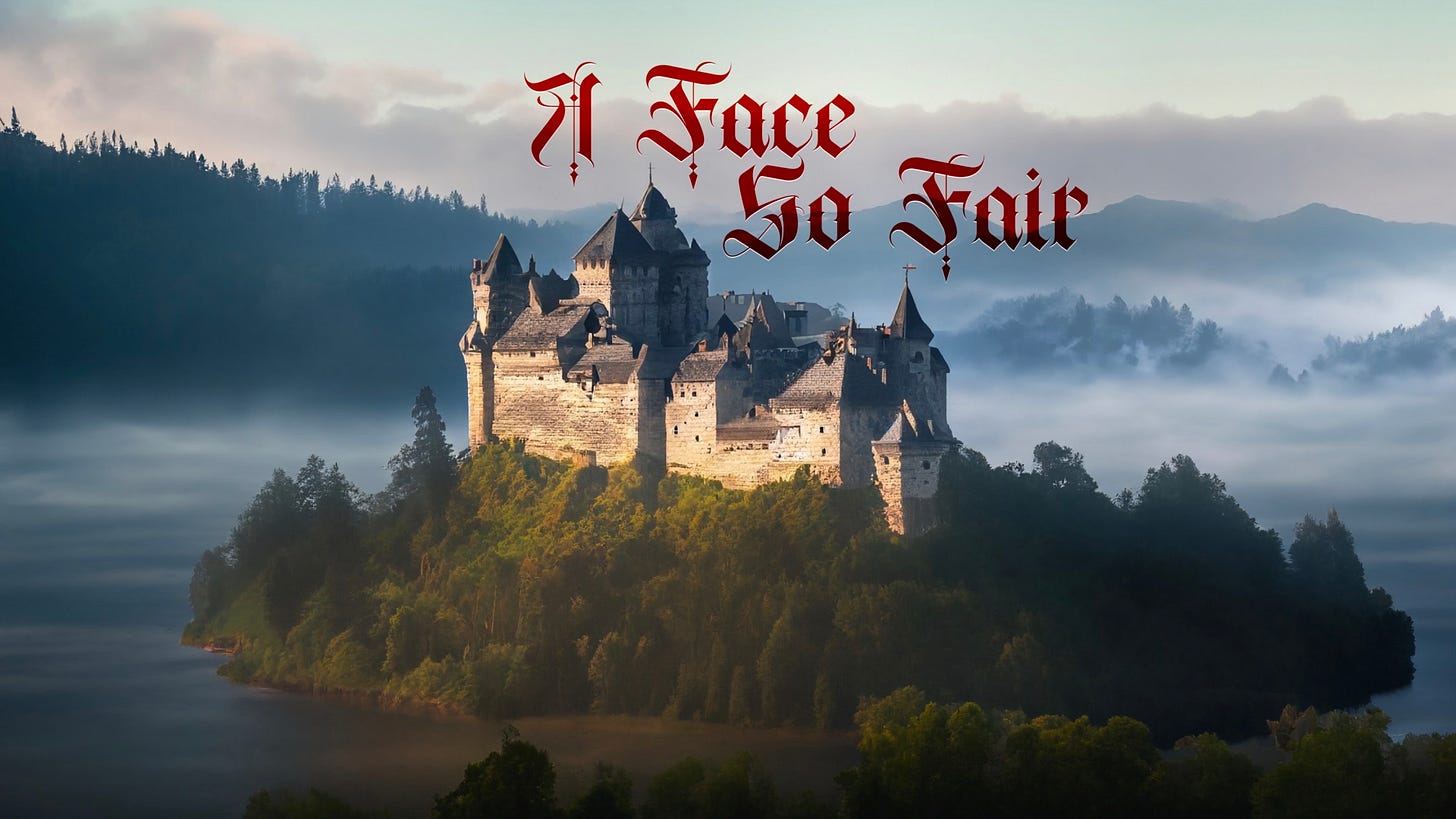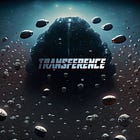Cold, thick morning mist hangs over the land, flowing in from green, soft hills, lingering like some unwanted guest. All lay quiet. Dark, damp moss spreads along cobbled stone, nature claiming what is not hers to claim.
I shall have word with the gardener on the morrow. My lady stirs, tormented by a fevered dream. She needs medicine. No sign of the apothecary. Where is that accursed apprentice? He should have fetched him twice by now.
Her pain pierces the silence like a fiery dagger. I can tarry no longer. Thrice confounded apothecary. Be not unlike him to quaff an early mead. I shall produce the wretched soul hither. And his errand boy, a proper flogging. Anon, I must away.
“Halt! Who goes there?”
I emerge from the mist. A guard, looking upon me, lowers his sword and kneels.
“Pardon my liege, I did not see clearly.”
“Rise, my good man. Your vigilance is without fault. Your caution is well placed. This ghastly fog may be witchcraft yet. Alas, I must make haste. My lady is in desperate need of medicine.”
“Aye, my lord. I shall send for the apothecary at once.”
“It has been done, yet he has not come. I will fetch the old fool myself. Stand fast and guard these stairs. None must disturb my lady. I shall return ere long.”
The cock crows. Break of dawn. As I rush by, a sow on frozen mud bares her teats for her spawn to suckle. A familiar neighing from the stables. The horse knows its master. My trusty steed, this battle I must make on foot.
Past the baker's hut, the oven fast aglow. Scent of warm bread thaws my senses, nostrils eager. Onwards, down that way, shadows still linger. The warmth of sunbeams smothered by this cursed fog’s embrace.
Breath stifled by cold air, eyes wide, I descend into the alley. My senses tingle. Draw your sword. Danger is afoot. Steel unsheathed, I advance. Crooked rooftops fading out of sight, loom silently above. Grey, mute walls grow ever more narrow.
Hazy windows up ahead, dimly lit, like watchful eyes, glare down on my approach. An oaken door appears. One more step. It stands ajar. No sound from within. Sword ready, I step into the warmth. Apothecary?
Low embers hiss. Through the fireplace, a gust of wind escapes. Not a soul in sight. Tankards and plates still on tables, left against their will, yearning for their owners. There, a shadow flickers by the fire. Dost my eyes deceive me?
“From whence hast thou come, vile crone. Where is the apothecary?”
“Do you not recognise me, my love?”
The voice, I know it well. She removes her hood. Long black silken hair flows along a face so fair it makes mere mortal men do foolish things.
Time stands still, yet she moves. Quick, you must not gaze upon her face. Too late. She commands me. The hilt glows red; it burns my hand. I let go. My will has come undone. She drowns me in her black abyss, flesh on flesh; I thrust and heave, her eyes a mirror of truth untold, a child unborn, a king without heir, a kingdom without king. I must stop this madness. She keeps me bound. I yield.
“Pay the price. From these loins springs the future. In darkness born, he shall bring light to the land. The deed is done, the seed is sown. Seven years there shall be peace ere I return to claim what’s mine.” She turns and vanishes into the mist.
Her voice echoes in my soul, a pit too deep for man to master. And so I fall and fall and fall, into endless night I fall.
“The Apothecary hath arrived, your grace.” The apprentice announces.
The old man bows and enters. Eyes heavy with slumber, I raise my head. There lies my lady next to me. Fear grips my bones and festers. Hand to hip finds no sword as I curse in pain.
“I have ointments to dress such burn, your highness.” The apothecary nods.
“Worry not about me. What ails my lady? Speak!”
“—A miracle, my lord. The Queen is with child.”
Flash Fiction #05 was another prompt exercise: Write no more than 700 words of historical fiction describing a place and time without telling the reader explicitly when and where the narrator is.
You may have guessed from the image, then again, I do hope no image is needed to guess the general location and time.
I took care to remove any explicit mention of the words castle (The castle lay quiet » All lay quiet) and tavern and also names. Who could the narrator be, and what did he get himself into?
I tried my hand at a register and genre I do not normally write in and kept it minimal, with the old form restricted mostly to dialogue and even then, not always:
“Dost thou not recognise me, my love?” // “Do you not recognise me, my love?”
Which do you prefer? Would you read a full play in this style?
If you like this content, please don’t forget to click the little heart and leave a comment. It helps to keep the pixels from fragmenting. Thank you!









Beautiful, I feel you got the medieval tone just right & really engaged all the senses in describing the environment, probably as a side of effect of avoiding names.
To be honest, tone is the main reason why I shy away from sharing my historical fiction in English - I'd be more confident in my native language but with English, I'd probably want to do more research to make sure I got it right. How did you do it for this piece?
I don't know why, but I love "nostrils eager." :)